#hws bangladesh
Text
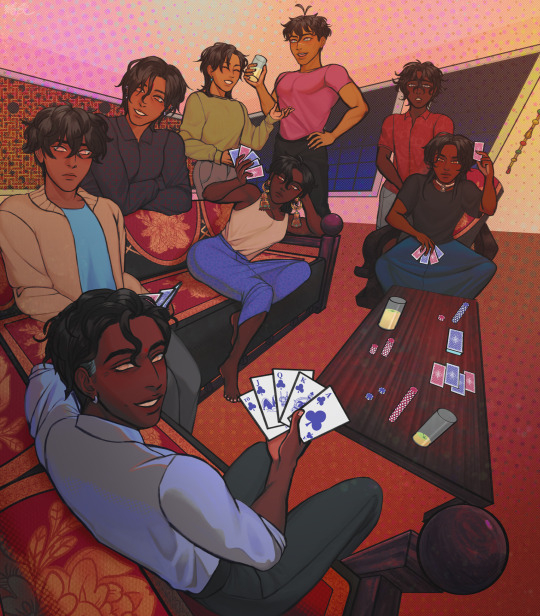

if this doesn’t flop i’ll post the nude/strip poker version 🤧
#hetalia#hws india#aph india#hws pakistan#hws bangladesh#hws sri lanka#hws nepal#hws afghanistan#hws maldives#hws bhutan#aph pakistan#aph bangladesh#aph sri lanka#aph nepal#aph afghanistan#aph maldives#aph bhutan#hetalia ocs#hws south asia
314 notes
·
View notes
Photo
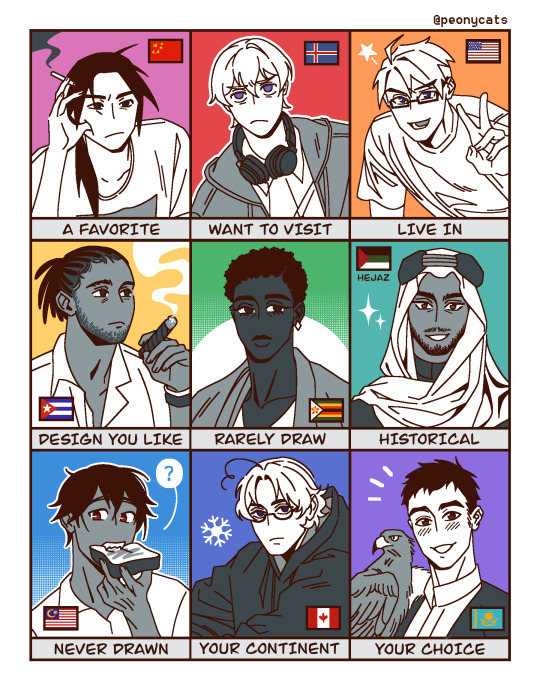
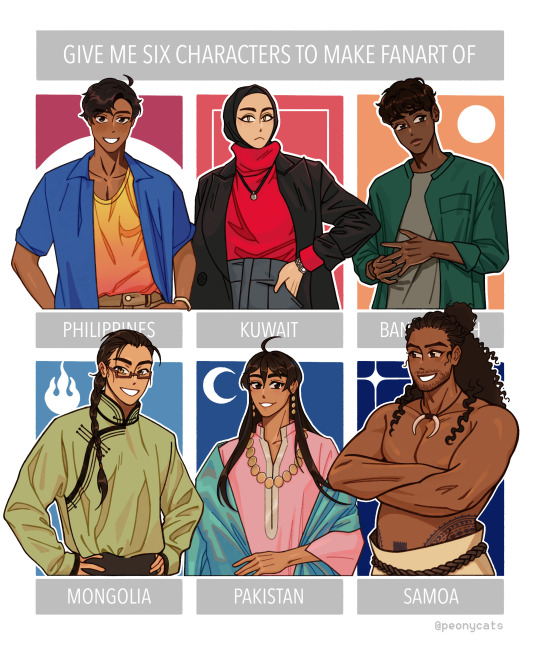
Some recent character batches I did on instagram! Doing these requests were fun, maybe I’ll do them again later :3c
#hetalia#hws china#hws iceland#hws america#hws cuba#hws zimbabwe#hws hejaz#hws malaysia#hws canada#hws kazakhstan#hws philippines#hws kuwait#hws bangladesh#hws mongolia#hws pakistan#hws samoa#hetalia ocs#historically inaccurate hair is historically inaccurate#aph china#aph iceland#aph america#aph cuba#aph zimbabwe#aph malaysia#aph canada#aph hejaz#APH Kazakhstan#aph philippines#aph pakistan#aph samoa
932 notes
·
View notes
Text
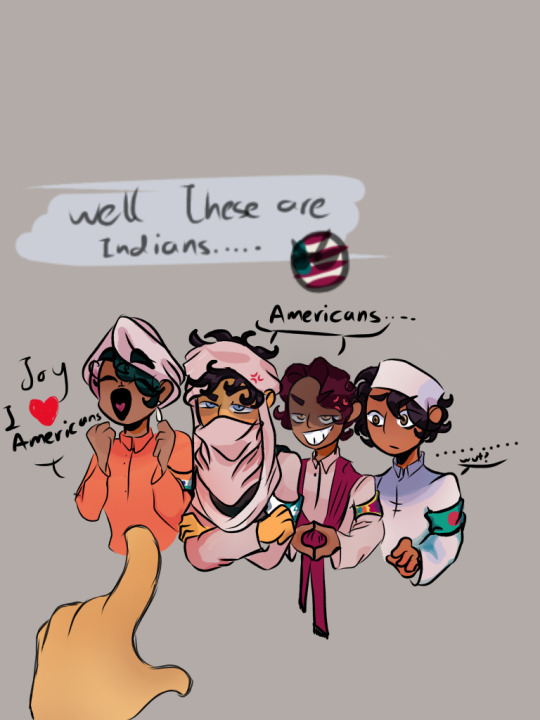
Hey y’all
#countryhumans#countryhumans sri lanka#countryhumans art#countryhumans pakistan#countryhumans india#countryhumans ban#art#hetalia#hws bangladesh#hws sri lanka#hws india#hws pakistan
38 notes
·
View notes
Text
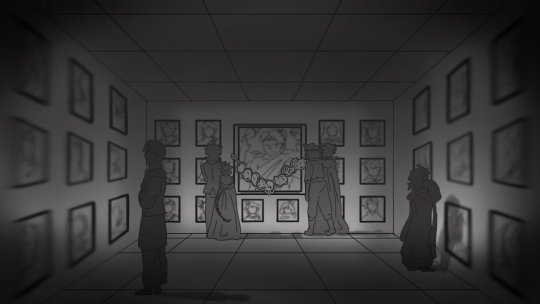
hetalia south asian ocs stuff again, this time with 6 out of the 19 I have
#aph india#hws pakistan#aph Pakistan#he's on the left#hws Bangladesh#aph Bangladesh#he's on the right#in the middle are india + some indian UTs#hetalia oc#hetalia ocs#hws india#hws south asia#the people in the pictures are also countries . they're not actual people .#I have a flow chart for all of the subcontinent ocs incase anybody wants to see it and hear me infodump#my art#hetalia ut ocs
24 notes
·
View notes
Photo

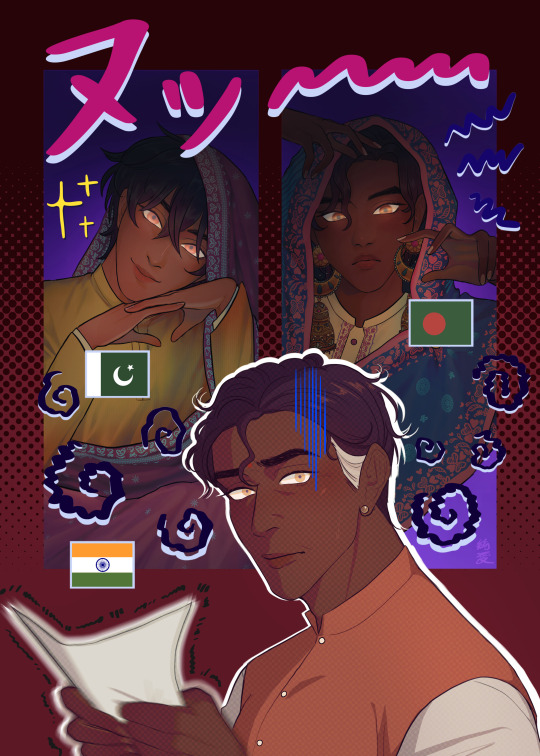
印度さんの隣人はちょっと変だ...


#hws india#hws pakistan#hws bangladesh#aph india#aph pakistan#aph bangladesh#hetalia#hetalia oc#hetalia asia#hetalia asians#hws#aph#ヘタリア
86 notes
·
View notes
Text
DOES ANYONE HAVE A SOUTH AFRICA, AFGHANISTAN, BANGLADESH OR SRI LANKA OC
#I need it o need to draw the cricket world cup table#Hws south africa#Hws afghanistan#Hws bangladesh#hws sri lanka
8 notes
·
View notes
Text
India: Youre right…
Bangladesh: That’s…that’s an unusual phrase for you. Did you just learn it?
#hetalia#aph india#poc-hetalia#aph bangladesh#random#hws india#hws bangladesh#incorrect quotes#boi what the hell boi
11 notes
·
View notes
Text
Summary: Events in India’s life, inspired by the speech, ‘A Tryst With Destiny.’
India = Bharat
Pakistan = Faiz
Bangladesh or Bengal = Padma
Sri Lanka = Aadhya
Disclaimers:
I am not a history expert, nor will I ever claim to be. Everything written here is of my own research, if I made any mistakes please feel free to inform me!
I am also not Indian, or a Hindu Nationalist. I am not trying to demonize Pakistan in any way, if you feel that I am, please contact me privately and we can work together to fix it.
Warnings: Descriptions of violence and sickness.
Long years ago, we made a tryst with destiny, and now the time comes when we shall redeem our pledge, not wholly or in full measure, but very substantially."
November 2nd, 1858.
Bharat stood before Britain, his hands tied behind his back; Padma stood behind him, her head also bowed.
They were in jail in New Delhi. Honestly, Bharat was surprised Britain had not shot him dead and then dragged him here.
Britain glared, but his gaze was not very threatening. "Padma." Padma's head quickly snapped up, "yes, sir?" she quietly asked. "Leave us alone in privacy. Wait for me outside."
Padma looked at Britain, then back at Bharat, then quickly left.
She was only gone for a second before Britain reeled back his fist and punched Bharat in the face; Bharat stumbled back and fell to the floor, and Britain glowered at him from above.
"You really thought you could beat me?" Britain taunted, kicking him in the stomach for emphasis. "Your glory-filled empire days are over; your independence is not coming soon, so do not hold your breath."
Bharat managed to sit up and spit on Britain's feet. "I've been alive for almost 4,000 years. I've seen empires as great as yours crumble to dust. And I am in full confidence that yours will be among them."
Britain's pale face burned with anger, and he again kicked Bharat. "You will be sent to the Andaman Islands and serve your sentence there until I declare it over." He kicked India again to prove his dominance and then left the room with a slam.
"At the stroke of the midnight hour, when the world sleeps, India will awake to life and freedom. A moment comes, which comes but rarely in history, when we step out from the old to the new, when an age ends, and when the soul of a nation, long suppressed, finds utterance."
February 28th, 1948
Bharat watched the 1st battalion of the Somerset Light infantry march through Bombay from his balcony with a smile.
After this battalion left, India would finally be free of the British Army, a process more than 200 years in the making.
As he watched the battalion pass by, he remembered the 39th Foot, the first British army regiment stationed in India, and how much he loathed their presence. India's opinion hasn't changed since then.
Bharat knew Britain would try to hold on to the crumbling remnants of his empire, but as he watched the setting sun, he knew the British Empire had ended.
"It is fitting that at this solemn moment, we take the pledge of dedication to the service of India and her people and to the still larger cause of humanity."
December 30th, 1906.
Bharat sat alone in Calcutta, he knew Faiz and Padma were in Dacca, and he had an inkling of their plans.
He had told Faiz it was a bad idea to take Padma on a journey like that with her declining health. But he hadn't listened.
Faiz had been particularly aggressive these past days, ranting about a new policy Bharat didn't like.
The two-nation policy, it had been dubbed. It supported the idea that upon Independence, the British Raj be split into two nations. One for Muslims and another for Hindus.
The whole idea sounded absurd to Bharat; it would just divide people further, and what about Muslims living outside of the territories that Faiz had suggested becoming the Muslim state? What would become of them, or the Hindus living in what would theoretically be in the Muslim State?
Faiz's whole plan was utterly ridiculous, and when Independence came, he hoped that Britain would be sensible enough to not divide them like this.
"At the dawn of history, India started on her unending quest."
1921, No specific date
It was a warm summer's night when Faiz had come to him with the question.
"What do you remember about…being born?"
Bharat raised an eyebrow, "now, why would you want to know about that?" Bharat questioned.
"I just wanted to know, I guess…" Faiz answered nervously.
Bharat chuckled; he knew why Faiz was asking these questions. Ruins of a civilization called the Indus Valley Civilization had just been discovered in Punjab; perhaps he wanted to see how that Civilization could be related to him.
Bharat cleared his throat and prepared for a long story.
"I don't remember a lot about being born. I was born in the Northeast; I just felt like being born. Suddenly the world just started; I'm unsure how to explain it. I followed a river to Civilization, and the local villagers took me in."
Faiz frowned, "so, no cool story about your birth." Bharat shook his head, "I'm sure you can ask Padma; maybe she has a better answer."
"and trackless centuries are filled with her striving and the grandeur of her success."
Sometime between the 4th century and 5th century AD.
India = Bhadra
Bangladesh = Amrapali
Bhadra went over the mathematics again to ensure he was getting it right. At that very moment, Amrapali decided to stick her head in.
"What are you doing?" Amrapali asked, looking over Bhadra's shoulder. Bhadra didn't even get to answer because Amrapali then groaned.
"Math again!?" Amrapali complained. Unlike Bhadra, mathematics didn't interest her at all. Instead, she devoted her days to plays and art.
"When are you going to do something fun?" Amrapali questioned, pulling on Bhadra's arm.
Bhadra laughed, "So you want to do something fun?"
Amrapali nodded, and Bhadra gestured to the board in front of them. "What about we play some chaturanga then?"
"and her failures. Through good and ill fortune alike, she has never lost sight of that quest or forgotten the ideals which gave her strength. We end today a period of ill fortune, and India discovers herself again."
August 16th, 1946
Bharat ran through the streets of Calcutta, looking for Faiz. The violence had escalated unimaginably, and Padma was right in the center.
Dead bodies in the streets, and business owners were forced to flee. Bharat had to find Faiz and stop this, but he had no clue where to find Faiz in the first place. He could be anywhere.
When he finally found Faiz, to say he was angry was an understatement.
"What have you done?" Bharat questioned.
Faiz scoffed, "What have I done? I didn't do anything!" Bharat gestured to the damage around them, "What is this then? Your dumb league incited the violence; what does 'direct action' mean?"
Faiz shook his head, "I don't know where you're getting your information from. The Muslim League is only standing their ground!"
Suddenly screams came from down the street, and a truck loaded with men holding iron bars and lathis drove past them. At first, Bharat thought the truck would keep going, but then the truck abruptly stopped.
The men trickled out of the truck and started running towards them, screaming.
Bharat looked at Faiz, "I think that's a sign for us to run."
"Freedom and power bring responsibility. The responsibility rests upon this assembly, a sovereign body representing the sovereign people of India. Before the birth of freedom, we have endured all the pains of labor, and our hearts are heavy with the memory of this sorrow. Some of those pains continue even now. Nevertheless, the past is over, and the future beckons to us now."
Sometime in 1950.
Bharat finished packing the final box; the British Raj house was finally empty. Bharat had meant to move out of this house for a couple of months; the memories associated with this house were just too much.
There was just one thing left, the giant painting on the wall. Britain had commissioned this shortly after Queen Victoria was crowned Empress of India.
Britain stood tall and proud in the center, surrounding Bharat, Pakistan, and Padma. None of them were smiling except Padma, who smiled even when she wasn't supposed to.
Bharat couldn't decide whether to get rid of or keep it; it was something about nostalgia.
But there was something Bharat hadn't considered; Pakistan was gone. His own country now, a country that hated his guts.
Bharat knew that he could keep his personal relationships separate from a county's, but keeping a good relationship with Pakistan would be impossible.
Bharat took the portrait off the wall. It was time to let go of the past.
"That future is not one of ease or resting but of incessant striving so that we may fulfill the pledges we have so often taken and the one we shall take today. The service of India means the benefit of the millions who suffer. It means the ending of poverty and ignorance and disease and inequality of opportunity.
The ambition of the greatest man of our generation has been to wipe every tear from every eye.
That may be beyond us, but as long as there are tears and suffering, so long our work will not be over."
1943
Bharat finished reading the letter, his hopes thoroughly diminished. According to the letter by Aadhya, Padma's condition had severely worsened. The Bengal Famine was wrecking her, even as she lay in New Delhi. Aadhya doubted that she would make it past partition.
Faiz quickly noticed Bharat's emotional change. "What happened?" Faiz asked. Bharat sighed, "Padma's condition worsened. Aadhya thinks she won't make it past partition."
Faiz frowned, "Padma is much stronger than she looks; she'll be fine." Bharat snorted, "You overestimate how strong Padma is. You know how weak she was post-1905."
Bharat crumbled up the paper and threw it on the ground; he would have to write back to Aadhya later. He wished he could be there, but Britain would throw a fit if he left the front lines. Bharat prayed that Faiz was right, he knew Padma was strong, but the last few decades had put quite a strain on her.
"And so we have to labor and to work, and work hard, to give reality to our dreams. Those dreams are for India, but they are also for the world, for all the nations and peoples are too closely knit together today for anyone of them to imagine that they can live apart.
Peace has been said to be indivisible; so is freedom, so is prosperity now, and so is disaster in this one world that can no longer be split into isolated fragments.
To the people of India, whose representatives we are, we make an appeal to join us with faith and confidence in this great adventure. This is no time for petty and destructive criticism, no time for ill will or blaming others. We have to build the noble mansion of free India where all her children may dwell.
The appointed day has come - the day appointed by destiny - and India stands forth again, after long slumber and struggle, awake, vital, free and independent. The past clings on to us still in some measure, and we have to do much before we redeem the pledges we have so often taken. Yet the turning point is the past, and history begins anew for us, the history which we shall live and act and others will write about."
January 26th, 1950.
It was done. The Constitution of India was finally completed, passed, adopted, and put into force. It took 2 years, 11 months and 18 days, and 6.4 million rupees. But all that mattered now was that the new country had a constitution, they had gone the last three years of Independence without one, and Bharat worried that every day without one would lead to India's destruction.
The number of people living within Bharat's border scared him but filled him with awe. 359 million people of different cultures and religions now resided within his country.
He would have to work with all of the personifications to make sure that they didn't fight amongst each other and that they all got the rights given to them under the Indian constitution.
The new constitution didn't guarantee that India would stay together; at any time, something could happen, but it gave the country more legitimacy and made it a little more stable. Which was all Bharat could care about.
Bharat had no idea what would lay before him in the future, what would happen. All he hoped was that India would stay together through all of it.
"It is a fateful moment for us in India, Asia, and the world. A new star rises, the star of freedom in the east, a new hope comes into being, a vision long cherished materializes. May the star never set, and that hope will never be betrayed!"
September 25th, 1949
Bharat smiled as he watched the crowds gather in anticipation of the elephant's arrival. It was India's first big diplomacy move, and he was happy it was coming to fruition.
"Are you ready to see the elephant?" Bharat asked Kiku. Kiku had always been a prominent ally of his, even with the whole Anglo-Japanese thing that had gone down. "I am excited to see the elephant. Thank you, India-san, for the elephant. Indira is bringing hope to Japanese children everywhere."
Bharat couldn't take that statement to heart due to mainly America's occupation of Japan. Everything that Kiku was saying was likely scripted by America himself. Bharat knew this because this had happened to him many times under Britain's rule. Kiku was also in a terrible state, his skin scarred and charred, and he was left standing with a cane.
Cheers erupted as the elephant finally embarked off the ship. Bharat and Kiku made their way to the front of the crowd. "She's majestic," Bharat sighed; he had always held a deep respect for elephants, the way their presence commanded some respect. Kiku nodded along with him, "They really are."
"We rejoice in that freedom, even though clouds surround us, and many of our people are sorrow-stricken and complex problems encompass us. But freedom brings responsibilities and burdens, and we have to face them in the spirit of a free and disciplined people.
On this day, our first thoughts go to the architect of this freedom, the father of our nation, who, embodying the old spirit of India, held aloft the torch of freedom and lighted up the darkness that surrounded us.
We have often been unworthy followers of his and have strayed from his message, but not only we but succeeding generations will remember this message and bear the imprint in their hearts of this great son of India, magnificent in his faith and strength and courage and humility. We shall never allow that torch of freedom to be blown out, however high the wind or stormy the tempest."
February 2nd, 1948.
When Bharat had heard of Mahatma Gandhi's death, he had gone into a state of shock. At first, Bharat had assumed that Gandhi had died of natural causes, a heart attack maybe. But when he learned that he was assassinated, Bharat was shocked.
Now as he walked the five miles of Gandhi's funeral procession, Bharat was left in a state of confusion. He knew Gandhi would not live forever, but to have his life cut short like this was undeniably cruel. All because he didn't support violence against Muslims.
Now Bharat knew that all the violence of the partition was useless and never should have happened. Religious extremity had led to his death, and Bharat was determined to ensure that the same religious extremity would lead to his own country's death.
"Our following thoughts must be of the unknown volunteers and soldiers of freedom who, without praise or reward, have served India even unto death.
We also think of our brothers and sisters who have been cut off from us by political boundaries and who unhappily cannot share at present in the freedom that has come. They are of us and will remain of us whatever may happen, and we shall be sharers in their good and ill fortune alike."
1990's
Loud screams of 'India Zindabad' color the air orange, green, and white. Bharat knew that Faiz was on the other side of the border, watching the same ceremony he was in.
The national enthusiasm and patriotism were almost too much for Bharat, and he could feel his competition flaring up.
The guards wore their khaki uniforms while wearing frilly red headdresses that even India thought were a little too expensive.
The whole show went on for 20 minutes, with each of the guards showing off. They met in the middle for a blink-and-you-miss-it handshake, and that was that.
India knew this ceremony was supposed to connect, but it only inspired his competition with Pakistan.
"The future beckons to us. Whither do we go, and what shall be our endeavor? To bring freedom and opportunity to the common man, to the peasants and workers of India; to fight and end poverty and ignorance and disease; to build up a prosperous, democratic, and progressive nation; and to create social, economic, and political institutions which will ensure justice and fullness of life to every man and woman.
We have hard work ahead. There is no resting for any one of us till we redeem our pledge in full, till we make all the people of India what destiny intended them to be.
We are citizens of a great country on the verge of bold advances, and we must live up to that high standard. To whatever religion we may belong, all of us are equally the children of India with equal rights, privileges, and obligations. We cannot encourage communalism or narrow-mindedness, for no nation can be great whose people are narrow in thought or in action."
March 2022
India rechecked the gdp reports again; he knew his economy had massively grown. But this, this achievement of irony, was a little too unbelievable.
It was true India had taken over Britain, becoming the fifth-largest economy in the world.
With a cheer, Bharat threw up the papers in the air, how he would pay to see England's current state.
India would have to bide his patience until he saw England again to brag about it. Still, he would have to make his birthday party much more glamorous to showcase his new position in the world economy.
"To the nations and peoples of the world, we send greetings and pledge ourselves to cooperate with them in furthering peace, freedom, and democracy. And to India, our much-loved motherland, the ancient, the eternal, and the ever-new, we pay our reverent homage, and we bind ourselves afresh to her service. Jai Hind [Victory to India]."
This is part of my historical hetalia series about any historical event from any part of the world. The next one will be about Japan!
#hetalia#hetalia fanfiction#historical hetalia#aph india#hws india#aph Bangladesh#hws bangladesh#aph pakistan#hws pakistan#aph sri lanka#hws sri lanka#aph japan#hws japan#aph england#hws england#shamangus writes
4 notes
·
View notes
Text

MORE HETAOCS <333 they’re so cute
#hetalia#aph#hws#hws afganistan#aph afghanistan#hws iran#aph iran#hws kosovo#aph kosovo#aph bangladesh#hws bangladesh#aph sudan#hws sudan#hws morocco#aph morocco
17 notes
·
View notes
Text
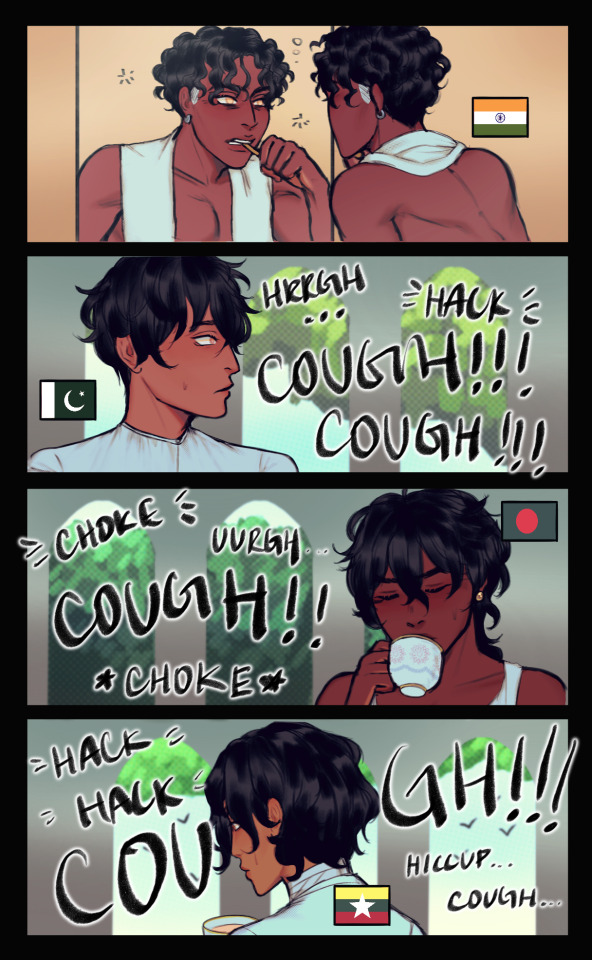
why do older men make this a morning ritual.
#hetalia#hws india#aph india#hws pakistan#aph pakistan#hws bangladesh#aph bangladesh#aph myanmar#hws myanmar#aph#hws#hws south asia#this is during colonial era hence why bangladesh doesnt have his earrings but the flags are post bc thats what ppl know#ヘタリア
275 notes
·
View notes
Note
hey mate! :D can u draw the desi gang (india,pakistan, bang and sri) BTWWWWW UR ART IS SOOOOOOOOO COOOOOOOOL 0////0

I can do you one better how about the whole South Asia gang
left to right: India, Sri Lanka, Bangladesh, Pakistan, Nepal, Bhutan, Maldives, Afghanistan
CLOSEUPS:

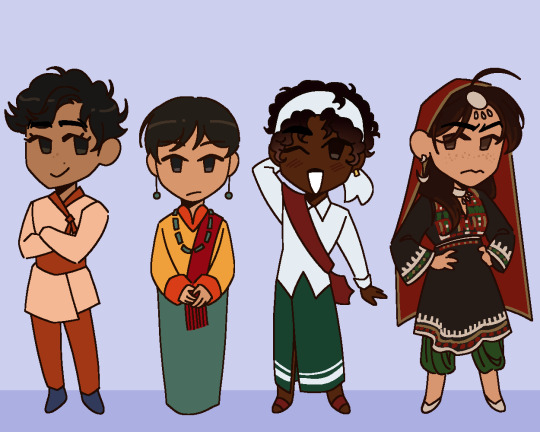
#hws india#aph india#hws bangladesh#hws sri lanka#hws pakistan#hws nepal#hws bhutan#hws maldives#hws afghanistan#ask#anonymous#hetalia ocs#hetalia#historically inaccurate hair is historically inaccurate#it’s killing me how much taller india is over everyone else HSHDJDJ I DEF ENDED UP EXAGGERATING IT MORE THAN INTENDED#aph nepal#aph bangladesh#aph pakistan#aph sri lanka#aph maldives#aph afghanistan#aph bhutan
282 notes
·
View notes
Text
Hetalia
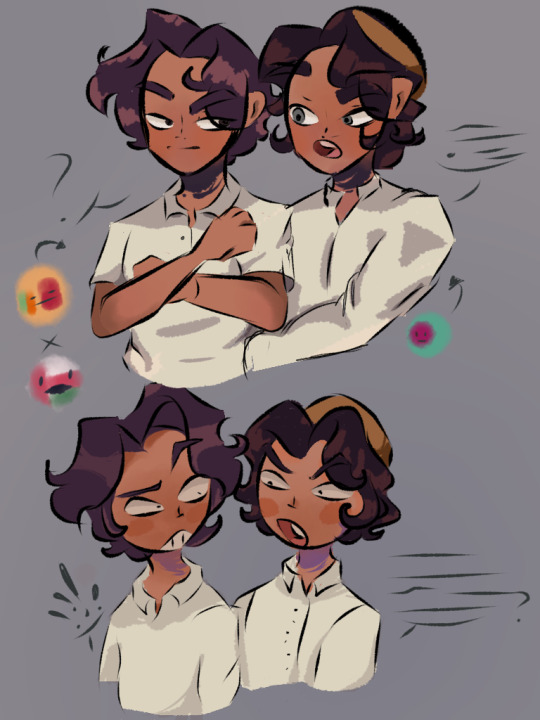
#countryhumans#countryhumans sri lanka#countryhumans art#countryhumans bangladesh#hetalia#hws sri lanka#hws bangladesh
16 notes
·
View notes
Note
Welcome back to the fandom! What is ur human name for India? Also thoughts on the "hws india is a vegetarian" headcanon ? I have mixed feelings abt it but I want to know what other Indians think about it.
thank you for ask anon !! i used to have pretty detailed hcs on india's personifications but that was from when i was. like 13. so my views have shifted a lot since then. that and i used to store my lore on the notes app and ive switched phones like at least twice since then so the original texts are lost 💀 kind of just building everything from the ground up again.
for south india: anandhan ! (meaning: i have seen a good handful of meanings for this name, but they always revolve around happiness ! the ones i see the most are "bringer of happiness" and "one who is happy and cherishes life)
for north india: idhant ! (meaning: luminous, one who spreads light)
for northeast india: mahika ! (meaning: the Earth, dew drops)
those are not all of my india personifications, just the ones i definitively have Names for.
i don't think any of them really use last names for anything but convenience's sake. like an aadhar card. or a driver's licence.
honestly these ocs are in a bit of a contentious spot with me rn cuz while just one "nation wide" india personification doesn't make sense, the way regional ocs would work also confuses me Greatly, there's so much diversity even in just One state that grouping a bunch of states together to make a "unified" regional oc also feels slightly disingenuous. should rajasthan and punjab be represented by the same person ? tamil nadu and karnataka ? assam and meghalaya ? probably not ??? if every single state has a personification (they do) then how does a "main" personification on a sub-regional or national level come to be ? still figuring all that out tbh 😭
as for the vegetarian question, i do have thoughts on that, but this post is getting long so i'll expand on my thoughts in a reblog.
#asks#anon#meadow says things#do i tag this as hws india ??#also if there's any bengalis out here reading this if you are comfortable with it Pls send asks or dm me#your views on how bengal west bengal and bangladesh like#“function” as personifications#because i am Struggling not gonna lie
3 notes
·
View notes
Text
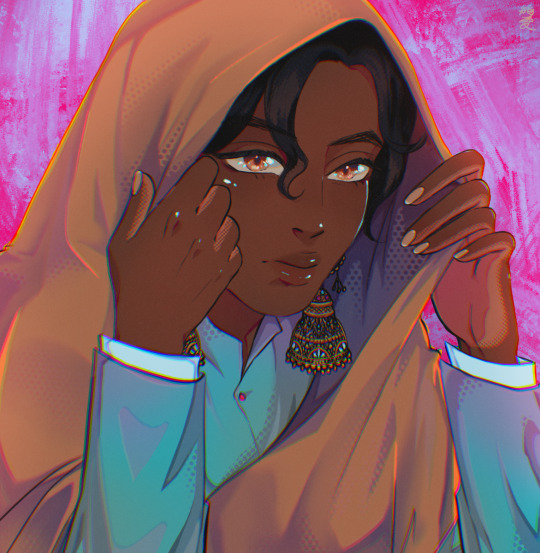
mika pikazo colour study
72 notes
·
View notes
Text

Yep. Bangladesh for the first day of the HWS Asia Week. I know I'm late, and extremely sorry I just posted now.
It's the Fan-made character of Bangladesh, playing an Instrument, named ektara (It's used in mostly India, but it appears at the western side of Bangladesh too).
@hwsasiaweek I hope it counts in
19 notes
·
View notes
Text
India: We need to get through this locked door. Pak give me your credit card.
Pakistan: Here.
India: *pockets it* thanks! Bangla, kick the door down
#hetalia#aph india#aph pakistan#poc-hetalia#random#aph bangladesh#hws india#hws pakistan#incorrect quotes#hws bangladesh
24 notes
·
View notes